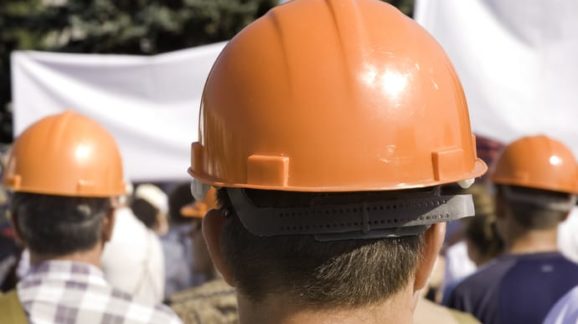Just 5 percent of private sector workers voted for their unions

Imagine if you lived in a country where a vote held decades previous determined which party held control of the government and people had little to no say over who ran the party. That’s the situation many workers must deal with if they’re unionized.
There are 7.4 million unionized private sector workers according to the Labor Department. Just under 5 percent of those workers voted in favor of the union that represents them according to an analysis of department data by the nonprofit Institute for the American Worker, a free market think tank. The vast majority of those workers joined workplaces that were already organized and have had to accept the union to keep their job.
The workers almost never get a chance to weigh in themselves. The National Labor Relations Act (NLRA), the federal law covering union activity, does not require that a union ever have to reaffirm that it has the workers’ support once it is recognized. This is true even if none of the workers who originally voted for the union are still around.
Unions are only getting progressively less democratic. When the Institute for the American Worker ran the same survey back in 2016, the number of private sector workers who had voted for their union was 6 percent, a full point higher than it is currently.
Ford recognized the United Auto Workers (UAW) to represent its workers in the early 1940s. No current Ford worker has ever had a chance to vote for or against the UAW as their representative. Given the union’s recent corruption scandals involving the embezzlement of members’ funds, many rank-and-file UAW members probably wish that they had better ways to hold their leadership accountable.
To cite one more recent example highlighted by the report, the Service Employees International Union (SEIU) organized Jetstream Ground Services in May 2023 when just 87 of the 339 eligible workers backed the union. That’s just one quarter of the workers. It was legal under the NLRA, which is based on the number of ballots cast. If, theoretically, a company had 1,000 workers and only three voted but two voted for collective bargaining, that would still be good enough for the NLRB to recognize the union.
The National Labor Relations Board (NLRB), the federal agency that enforces the NLRA, isn’t big on ensuring that most workers participate in votes. When workers at an Amazon facility held a mail-in only election in Besmer, Alabama in 2021, the company requested the US Postal Service install a mailbox near the facility so workers could cast ballots. The company feared that workers who didn’t support the union might not bother to vote. The NLRB asserted that this attempt to ensure that all workers had a chance to vote amounted to election interference. “Strikingly absent from the Employer’s recitation of Board law is precedent establishing that the Board allows, permits, authorizes, or otherwise condones either party taking unilateral action to increase voter turnout,” the NLRB said in a court filing.
Unions have been pursuing changes to the NLRA that would give workers even less say. Unions have fought to institute so-called “card check” rules, which would eliminate union elections when a union presents cards it claims were signed by a majority of workers. That’s a problem because an election is the best way to ensure that those signatures on those cards aren’t fraudulent. The ill-named Protecting the Right to Organize Act backed by the Biden administration and other Democratic leaders would amend the NLRA to make unions automatic winners in disputed elections, among other changes.
Workers can attempt to decertify their union, but it is a cumbersome process invariably opposed by the union itself. Since the NLRA makes the union the workers’ “exclusive representative” in all labor matters, including decertifications, these can be uphill battles.
This should not be the case. The fact that so many workers have so little say is wrong. Congress should pass the Employee Rights Act, which would mandate periodic recertification votes, to give those workers a say in who represents them. Unions should exist to serve their members, not vice versa.